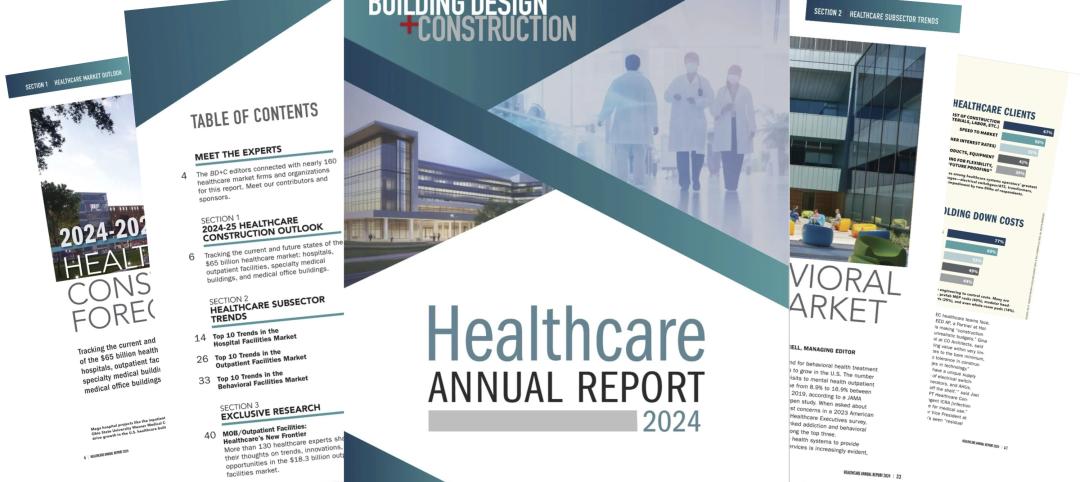Amazon has informed New York that it is pulling out of its plans to build a corporate campus in Long Island City in the borough of Queens, N.Y., a project that promised billions of dollars in investment and at least 25,000 high-paying jobs.
The tech giant faced considerable opposition to its plans, specifically about the nearly $3 billion in government incentives it would have received, but also about political and land-use concessions the city and state had agreed to make in order to lure Amazon, whose search for its “HQ2” location that attracted bids form 238 cities.
Under the plan it is now abandoning, Amazon, over a 15-year period, could have occupied as much as eight million sf of office space that could have accommodated up to 40,000 workers, according to the New York Times.
Amazon’s decision is seen as a major defeat for New York Gov. Andrew Cuomo and New York City Mayor Bill DeBlasio, who championed the effort to forge a deal with Amazon.
In its prepared statement announcing its decision Amazon thanked Cuomo and DeBlasio for their efforts, but also stated that “a number of state and local politicians have made it clear that they oppose our presence and will not work with us to build the type of relationships that are required to go forward with the project we and many others envisioned in Long Island City.”
It wasn’t just elected officials, though, who opposed Amazon’s plan. Typical of many of the responses posted on the Times’ website, following the news of Amazon’s decision, was this from one reader, identified as AL O:
So, you bypass the democratic process and cut a backroom deal that has you taking billions in public money for nothing more than the promise of jobs you may create, and then you're “surprised” when the local people whose rights you bypassed object to the terms of that deal? So, rather than standing your ground and explaining yourself, or perhaps renegotiating the deal a bit to make your neighbors around your proposed facility somewhat happier, you just panic and take your ball and go home crying? It doesn't sound like Amazon was ready for New York.
However, Kathryn Wylde, CEO of the Partnership for New York City, thought that the negative reaction that Amazon received upon its choice of Long Island City, and the company’s subsequent withdrawal from that decision, sends “a pretty bad message to job creators of the city and the world.”
Amazon says it has no immediate plans to reopen its HQ2 search. It will continue with its plans to build a corporate campus in Northern Virginia and other buildings in Nashville.
Related Stories
Codes and Standards | Jul 15, 2024
New York City code update changes definition of a major building
Changes affecting how construction projects in New York City are permitted will have significant impacts for contractors. On Dec. 11, the definition of a major building in the city’s code will change from 10 stories to seven, or 75 feet. The change will affect thousands more projects.
Adaptive Reuse | Jul 12, 2024
Detroit’s Michigan Central Station, centerpiece of innovation hub, opens
The recently opened Michigan Central Station in Detroit is the centerpiece of a 30-acre technology and cultural hub that will include development of urban transportation solutions. The six-year adaptive reuse project of the 640,000 sf historic station, created by the same architect as New York’s Grand Central Station, is the latest sign of a reinvigorating Detroit.
University Buildings | Jul 11, 2024
3 considerations for designing healthy, adaptable student dining
Amanda Vigneau, IIDA, NCDIQ, LEED ID+C, Director, Shepley Bulfinch, shares three ways student dining facilities have evolved to match changes in student life.
Healthcare Facilities | Jul 11, 2024
New download: BD+C's 2024 Healthcare Annual Report
Welcome to Building Design+Construction’s 2024 Healthcare Annual Report. This free 66-page special report is our first-ever “state of the state” update on the $65 billion healthcare construction sector.
Transit Facilities | Jul 10, 2024
Historic Fresno train depot to be renovated for California high speed rail station project
A long-shuttered rail station in Fresno, Calif., will be renovated to serve as the city’s high speed rail (HSR) station as part of the California High-Speed Rail Authority system, the nation’s first high speed rail project. California’s HSR system will eventually link more than 800 miles of rail, served by up to 24 stations.
Government Buildings | Jul 8, 2024
GSA adopts new accessibility guidelines for federal properties
The U.S. General Services Administration (GSA) adopted a new rule with new accessibility guidelines for federal buildings. The rule establishes that pedestrian facilities in the public right-of-way are readily accessible to and usable by people with disabilities.
Office Buildings | Jul 8, 2024
Office vacancy peak of 22% to 28% forecasted for 2026
The work from home trend will continue to put pressure on the office real estate market, with peak vacancy of between 22% and 28% in 2026, according to a forecast by Moody’s.
Virtual Reality | Jul 8, 2024
Can a VR-enabled AEC firm transform your project?
With the aid of virtual reality and three-dimensional visualization technologies, designers, consultants, and their clients can envision a place as though the project were in a later stage.
Green | Jul 8, 2024
Global green building alliance releases guide for $35 trillion investment to achieve net zero, meet global energy transition goals
The international alliance of UK-based Building Research Establishment (BRE), the Green Building Council of Australia (GBCA), the Singapore Green Building Council (SGBC), the U.S. Green Building Council (USGBC), and the Alliance HQE-GBC France developed the guide, Financing Transformation: A Guide to Green Building for Green Bonds and Green Loans, to strengthen global cooperation between the finance and real estate sectors.
Codes and Standards | Jul 8, 2024
New York State building code update would ban fossil fuels in new buildings
New York’s Building Code Council is set to include the All-Electric Buildings Act in its 2025 code update. The Act would ban natural gas and other fossil fuels in new buildings.

















